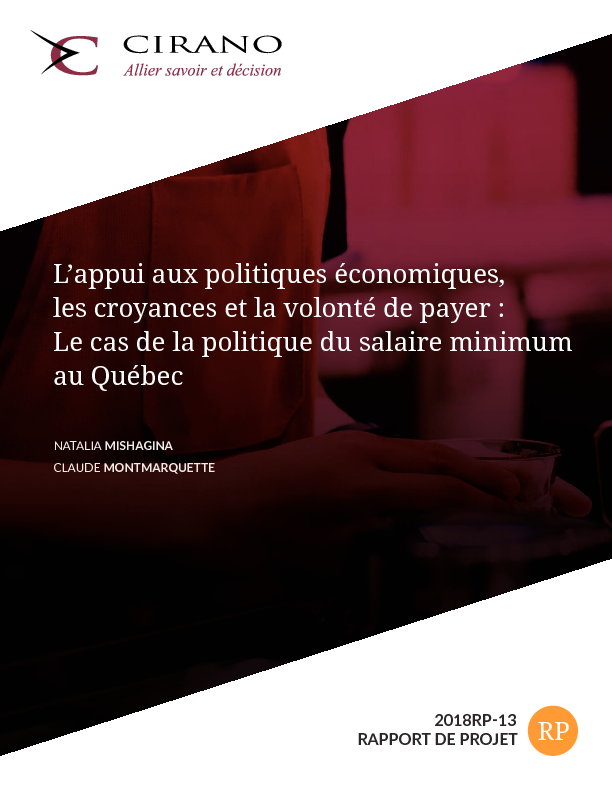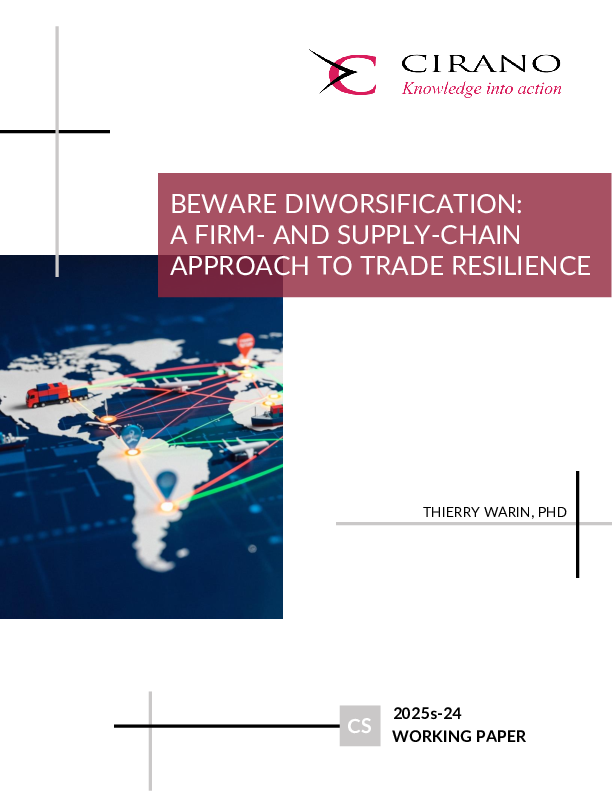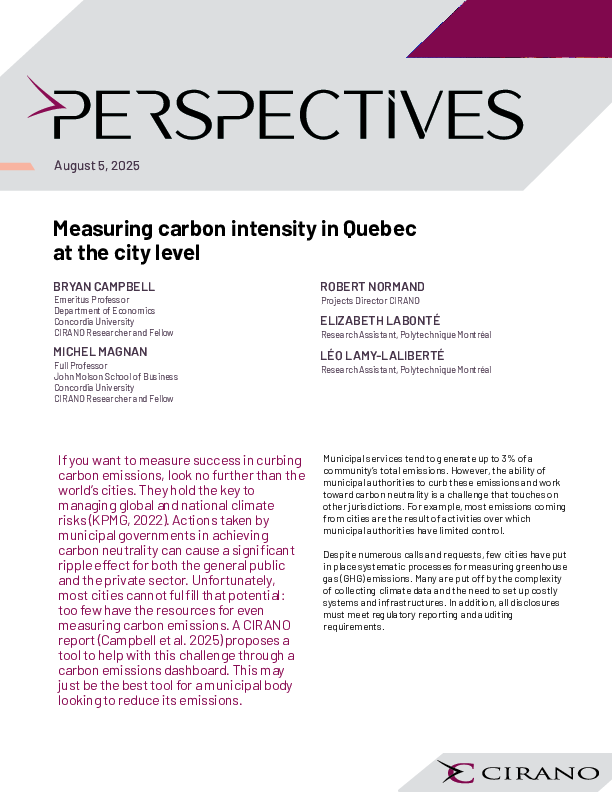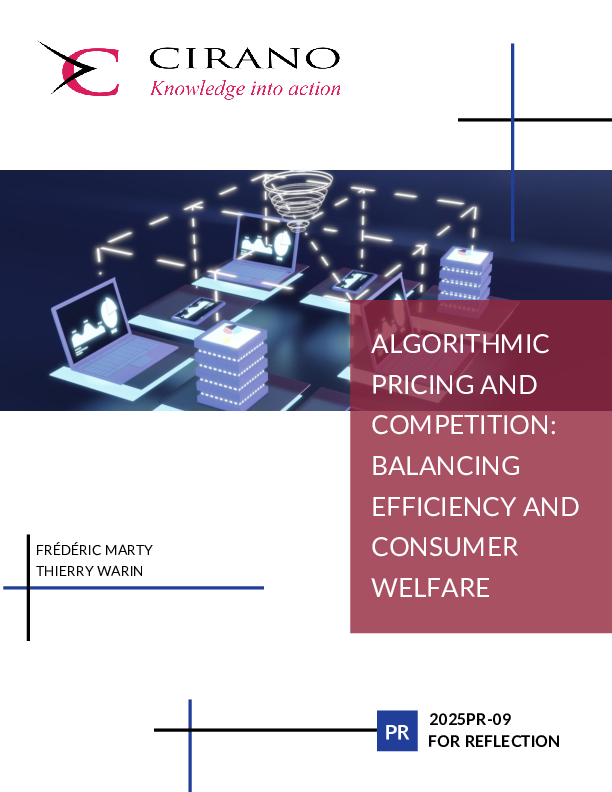L’appui aux politiques économiques, les croyances et la volonté de payer : Le cas de la politique du salaire minimum au Québec
According to economic theory, individuals make choices based on their preferences, beliefs, and budget constraints. Does the same reasoning apply to people’s choices in the domain of public policy? Moreover, if so, can we change whether they support or reject a policy by confronting their beliefs and by changing their budget constraints? Our study approaches both questions using the case of increasing the minimum wage to $15 an hour in Quebec.
We administered an online survey-experiment to 2,255 Quebeckers whose demographic characteristics were mainly representative of the general population. We collected their opinions on whether the hourly minimum wage should be equal to $15 (it was $10.75 at the time of the survey). The survey inquired if the individual respondent believed that he (she) or her family will directly benefit from the increase. We then elicited respondents’ knowledge of specific facts about the Quebec economy and their beliefs about possible consequences of raising the minimum wage. We also measured their social preferences using a modified dictator game, as well as their values using a series of questions about attitudes to redistribution, unemployed individuals, and perceptions of whether effort drives success (as opposed to luck or other factors). At the end of the survey, we administered an economic literacy test and measured respondents’ reasoning abilities using the Cognitive Reasoning Test and a numeracy test.
We then provided all respondents with the factual information about the current minimum hourly wage (in absolute terms and relative to the average hourly wage) and the proportion of workers who earn the minimum wage. Next, we randomly assigned participants to one of seven groups. All seven groups received the factual information that we described above. The first group did not receive any other information. The remaining six groups received information about hypothetical consequences of raising the minimum wage in addition to the factual information. Out of these six groups that received the hypothetical scenarios, the first three groups received one hypothetical scenario each about a possible loss of employment (10%, 30%, or 50%, respectively). The remaining three groups received one hypothetical scenario each about a possible increase in prices (5-10%, 15-20%, and 25-30%, respectively). After respondents read the provided factual information and hypothetical scenarios (if they had one), we asked them again whether the minimum wage should be raised.
Losses of employment can be thought of as a cost of the minimum wage increase directly to workers who earn the minimum wage. Price increases can be thought of as a cost of the minimum wage increase directly to the respondents. Therefore, we treat responses after the information treatment as a willingness to pay for the policy, either as costs to others or as direct costs to self.
We report several findings:
- Before the information treatment, opinions about raising the minimum wage were consistent with respondents’ preferences, beliefs, economic literacy, and their reasoning abilities.
- After the information treatment, opinions in favour of raising the minimum wage decreased in all seven groups. The smallest decrease in support occurred after the provision of the factual information alone (group 1). In the remaining six groups, the support for raising the minimum wage decreased as the hypothetical consequences of raising the minimum wage became more costly.
- Respondents predominantly overestimated the proportion of workers who earn the minimum wage and underestimated the level of income considered a poverty threshold. Respondents also tended to believe that in a market economy high wages are mostly due to responsible business leaders and that the minimum wage is lower than a market wage.
- A substantial proportion of respondents also expected positive outcomes on the labour market due to an increase in the minimum wage such as no loss of employment and more job opportunities for the unemployed. Respondents’ beliefs about the consequences of raising the minimum wage appeared link to their political preferences.
- When provided with the factual information in group 1, respondents with erroneous beliefs were the most likely to reduce their support for the policy.
- When provided with hypothetical scenarios, respondents whose beliefs contradicted the information in hypothetical scenarios were the most likely to reduce their support for the policy.
- In each of the seven groups, out of the respondents who initially did not support the increase in the minimum wage, there were between 10% and 25% of respondents who changed their mind after the information treatment and expressed support for the policy. The largest proportion of individuals who changed their mind (25%) was in group 2 where the hypothetical scenario asked about a 10% loss in employment if the minimum wage increases.
- Conditional on the participant’s initial choice to support the increase in minimum wage to $15, we observe a good deal of heterogeneity among the participants in the dynamics of their decision before and after information: while many switched from “Yes” to “No,” some went from “No” to “Yes.” Compared with individuals who believed in large employment losses, believing in some loss or hardly any loss was associated with a higher probability of switching opinions from “Yes” to “No” (by 12.6 and 13.2 percentage points, respectively). The respondents who turned favourable to raising the minimum wage after the information treatment tended to over-estimate the consequences relative to hypothetical scenarios they were presented.
We conclude that the demand for the increase in the minimum wage is consistent with individuals’ preferences and beliefs. Moreover, as the price of the policy increases, the demand for the policy drops. This drop is most prominent among those whose beliefs differed from the hypothetical scenarios that we provided. Respondents appear to be more sensitive to the costs of the policy regarding job losses than regarding prices. Given that we elicited stated rather than revealed willingness-to-pay, it is possible that respondents understate their willingness to pay the costs regarding losses of jobs, and overstate their willingness to pay the costs regarding higher prices.




